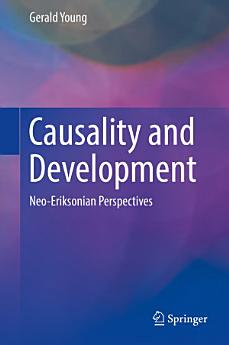Causality and Development: Neo-Eriksonian Perspectives
Información sobre este eBook
This elegant volume:
- Presents a clear picture of the development of handedness and laterality in more depth than has been attempted in the literature to date.
- Traces the causal concepts of activation-inhibition coordination and networking in the context of development.
- Describes in depth a novel 25-step Neo-Eriksonian lifespan model of development.
- Reviews relevant research on Piagetian and Eriksonian theories in development.
- Emphasizes the clinical utility of the described 25-step Neo-Eriksonian approach to lifespan development.
A significant step in understanding this highly nuanced subject and synthesizing a broad knowledge base, Causality and Development will find an interested audience among developmental psychologists, mental health practitioners, academics, and researchers.chers.
Acerca del autor
Gerald Young, at Glendon, was awarded Fellowship status in both the Association for Psychological Science (APS) and the American Psychological Association (APA). He has received awards from both the American Psychological Association and the Canadian Psychological Association (CPA). Young is Editor-in-Chief of the journal Psychological Injury and Law, which he founded. He also publishes in psychological, psychiatric, medical, and law journals, including a 3-part series on PTSD in Court (2016-2017). In 2017, he published an invited chapter for APA on evidence law. His most recent book is Revising the APA Ethics Code (Springer, 2017). He has appeared as an expert witness for a case involving the Supreme Court of Canada. His practice covers rehabilitation and families.







